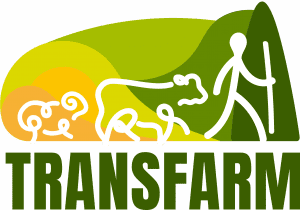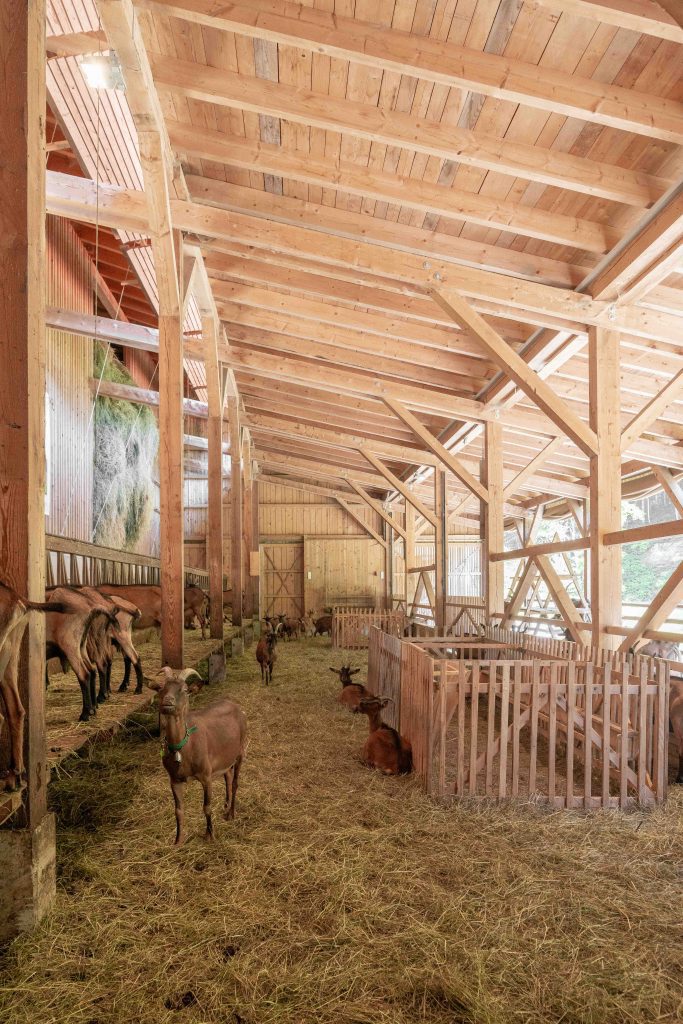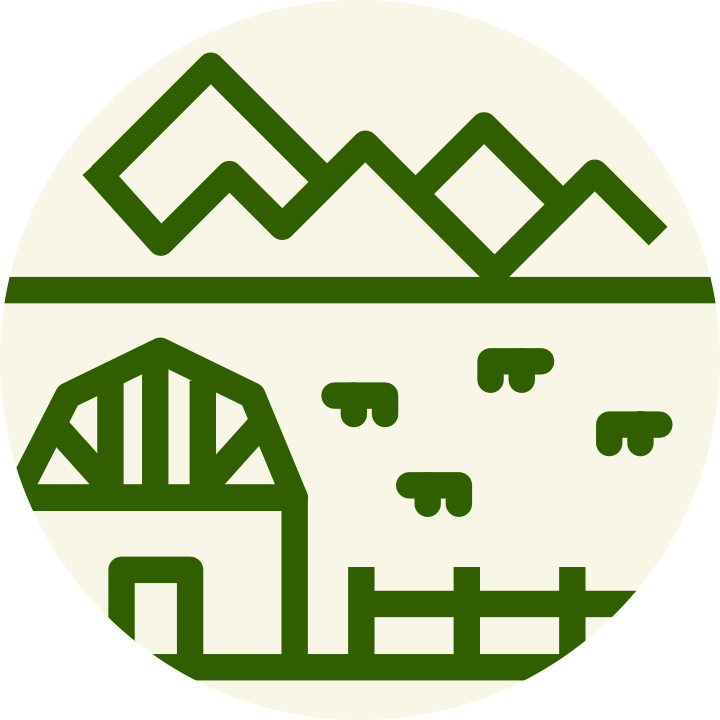The Adlegg Foundation offers an innovative concept for conservation and preservation of a cultural landscape. A common interest (landscape) and commitment of all partners are the basis of the concept. The success of the concept is based on the use of goats for landscape conservation, production of products (milk, cheese and meat) from the region for the region, strong community involvement and direct customer contact.



